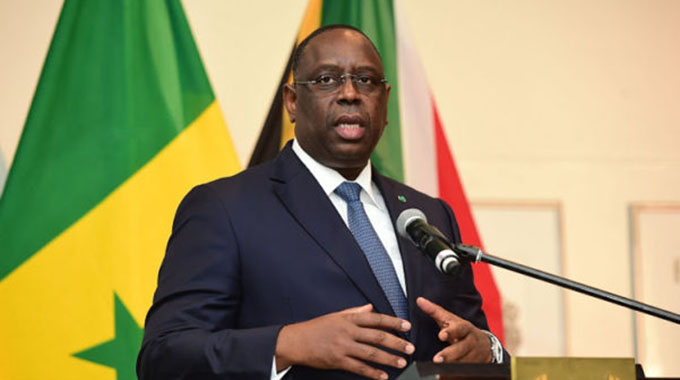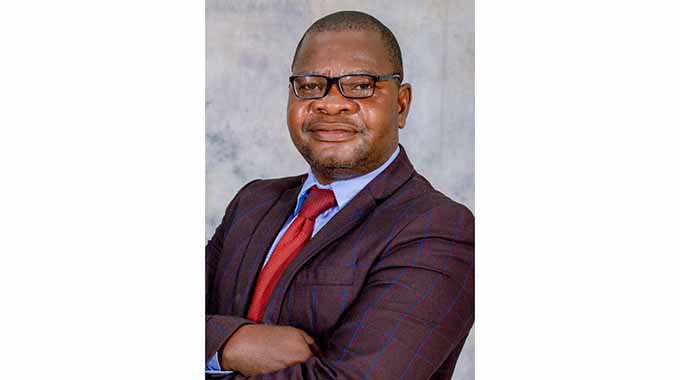African leaders corner US over sanctions

Fungi Kwaramba recently in WASHINGTON, US
AFRICAN leaders last week took the anti-sanctions crusade to the United States, unequivocally telling Washington to unconditionally remove the illegal embargo which continues to constrict the country’s development.
Flying from across the continent, home to more than 1.2 billion people, the African leaders also questioned the US unilateralism that is manifest in its use of sanctions to punish any dissenting views.
Pointedly, the African leaders queried the countering Malign Russian Activities Bill, that among other things would, if it becomes law, directs the US Secretary of State “to direct and submit to a strategy and implementation plan outlining United States efforts to counter the malign influence and activities of Russia in Africa”.
This sparked outrage in Africa as the sanctions seek to determine how sovereign nations relate with Russia, which actively supported African states during the liberation struggle against colonialism, relations which endure to this day.
During a meeting with US President Joe Biden in Washington DC during the US-Africa summit, Senegalese President and African Union chairperson Mr Macky Sall, speaking on behalf of the African continent, did not mince his words on sanctions and the overdue need to reform the United Nations Security Council.
“Africa calls for an inclusive and just world by accelerating the reform process of the UN Security Council and to give a seat to Africa in the UN. We want the support of the United States, we thank the United States for the commitments they made for Africa’s place at the G20 and this will happen at the next summit for strong international relations.
“In this spirit, Africa calls for the lifting of sanctions which continue to affect the Zimbabwean people. Zimbabwe has been sanctioned since (former President Robert) Mugabe’s time, I think its time to remove these sanctions so that Zimbabwean people can continue to fight effectively against poverty and underdevelopment,” said Mr Sall.
Because of the unjust economic sanctions, Zimbabwe has lost no less than US100 billion directly and indirectly with key sectors such as health and education taking a major knock. People have also lost their jobs because of the sanctions that have been condemned by the United Nations.
In his speech, Mr Sall added: “In the name of my colleagues I must tell you that we are concerned by the American Bill on economic and trade between your country and the foreign nations, this Bill with its sanctions that target the whole continent is the first in international relations. Africa is asking why such a Bill exists and why Africa is targeted. In the spirit of the World Trade Organisation, we ask for this Bill to be revised.”
Attending the same meeting was Foreign Affairs and International Trade Minister Fredrick Shava, who was representing President Mnangagwa.
Minister Shava outlined President Mnangagwa’s Engagement and Re-engagement policy telling the US of the need to broaden interactions from the narrow focus on democracy, human rights and good governance and the need to create a platform for regular, robust and mutually respectful dialogue and co-operation.
“Zimbabwe’s re-engagement strategy dovetails with the Biden administration’s commitment to resetting the US-Africa relationship. This summit presents an opportunity for the two countries to pursue mutually beneficial partnerships.
“Zimbabwe is open for business with the US and we welcome the launch of the US Chamber of Commerce in Zimbabwe.
“Our Government is implementing economic reforms that have restored economic fundamentals and improved the ease of doing business. The Government established the Zimbabwe Investment Development Agency (ZIDA) as a one-stop-shop for investment facilitation. However, continued US sanctions on Zimbabwe constitute the biggest impediment. We call for their total and unconditional removal.”
Fundamentally, Minister Shava said Zimbabwe is not seeking aid from the US but a mutually beneficial partnership that will result in increased trade between the countries.
He said Zimbabwe will continue implementing both political and economic reforms that will improve the welfare of the population as the country pursues its quest to be an upper-middle-class economy by 2030.
“Zimbabwe is endeavouring to build a society that upholds the rule of law, good governance, transparency and fights corruption. It is committed to strengthening the capacity of these institutions and is open to co-operation with the US on the matter.
“Zimbabwe is determined to guard jealously the sovereign right of the Zimbabwe people to freely choose their leaders, their governance system and their development trajectory. Zimbabwe welcomes international co-operation in the pursuit of these universal values but does not accept external interference in its domestic processes.
“The country is heading towards its 2023 harmonised elections and the Government undertook far-reaching political reforms aimed at levelling the playing field. President Mnangagwa is determined to ensure that the forthcoming elections are peaceful, credible, free and fair. He is preaching the gospel of peace and tolerance and has challenged all political contestants to desist from inciting violence and using hate language.”
Despite the progress Zimbabwe has made, there has not been acknowledgment of these reforms by the US but in the spirit of President Mnangagwa’s philosophy of being a “friend to all and an enemy to none”, the country continues to engage the Western world, with Minister Shava inviting the US Assistant Secretary of State for African Affairs to visit Zimbabwe for further engagements and re-engagements.








Comments